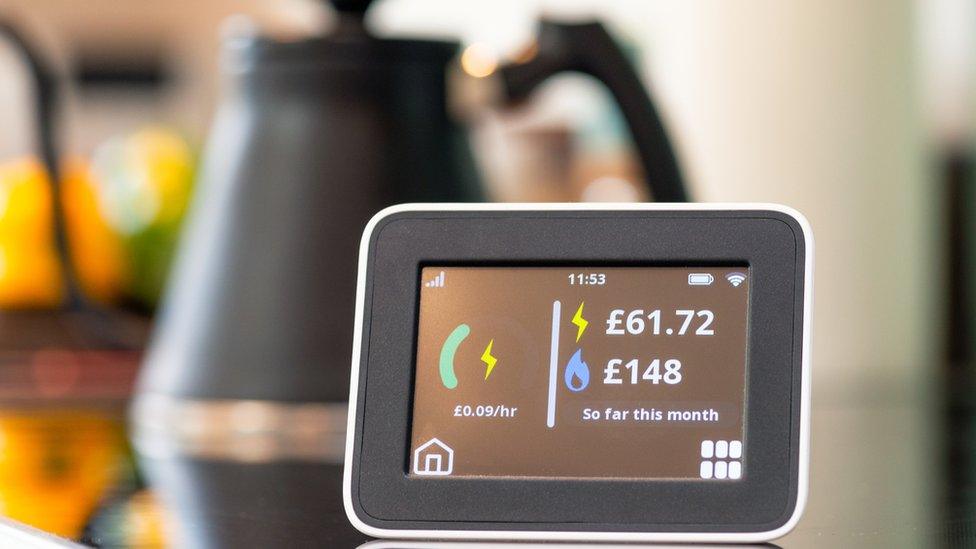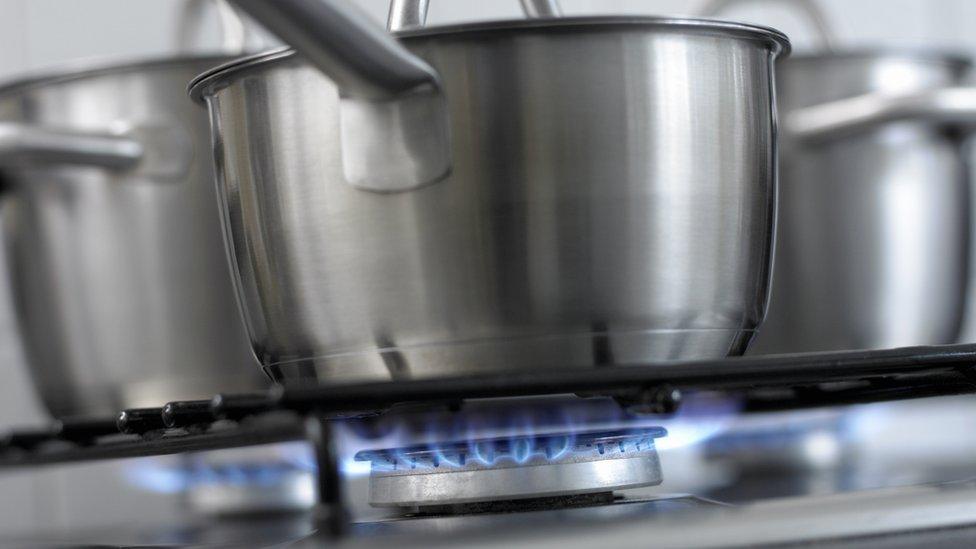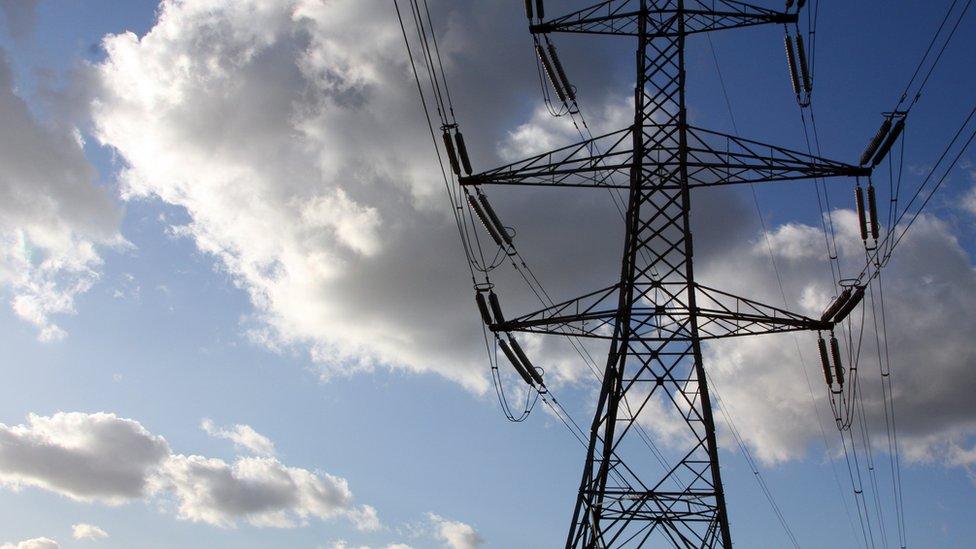Discounts for cutting peak-time electricity use too low, energy firms say
- Published

Energy suppliers have warned a plan to offer discounts on electricity bills for households that cut peak-time use risks failing because they are too low.
National Grid ESO is consulting on a scheme where people can save cash if they avoid high-power activities, such as cooking, when demand is high.
But energy firms Octopus and E.On said proposed payments to incentivise customers to sign up were too low.
It is hoped a scheme could be launched this winter after the consultation.
Last week, the government announced it would limit energy bill rises for all households for two years, but typical yearly bills will still rise in October from £1,971 to a cap of £2,500. Before the extra support was announced, typical bills had been set to hit £3,349 a year.
However, National Grid ESO has been consulting energy suppliers to explore how its scheme to pay people to cut electricity use at peak times could work.
It is understood the service will only be available to homes that have smart meters installed to sign up to. There are about 14 million households with electricity smart meters in the UK.
The Times first reported, external that both Octopus Energy and E.On had warned that the proposed payment to customers of 52p for each kilowatt-hour of electricity saved during peak times was too low, and would not encourage people to sign up.
Octopus Energy, which trialled National Grid ESO's proposals with 100,000 of its customers, told the BBC it would be "wrong to set a price before finding out what works for people".
"Like in any new service, we need to find out what customers respond to and then adjust the price accordingly," it added.
During its trial, Octopus added credit to the energy accounts of customers that took part. It also had a "self-refund option" where people could get the cash they had been paid by cutting peak-time use transferred to their bank accounts.
One energy industry source told the BBC that National Grid needed to offer more attractive rates to encourage enough people to sign up to its payment scheme.
"We really want this to work and we really want people to take part," the source added. "If you have a bad experience in the test run, you're not going to join it again when it becomes the real thing.
"We need that incentive that changes the behaviour. The higher the payments to customers, the greater chance of success."
It is understood one supplier suggested the extra payments offered to customers avoiding peak-time use should be between £1 to £2 per kWh.

E.On said it believed the current prices being discussed by National Grid ESO "aren't going to be enough to persuade people to take part".
"This activity is designed to be a last resort measure at times of stress on the grid and we feel the reward to customers should match recent prices and give people a real reason to take part," the company said.
The supplier said "time-of-use tariffs" would enable customers to "reduce their bills simply by changing when they use energy to cheaper times".
"It means they can lower carbon emissions by taking advantage of periods when there is plentiful renewable generation on the grid," a statement added.
A spokesman for National Grid ESO said: "As has been reported, two industry participants have provided feedback to the ESO as part of our ongoing consultation to define the scope and terms of the demand flexibility service we intend to launch this winter.
"As with all other feedback we receive as part of this consultation we will consider and review this information before submitting our final design to the regulator Ofgem to approve."
Related topics
- Published25 July 2022

- Published22 August 2022
